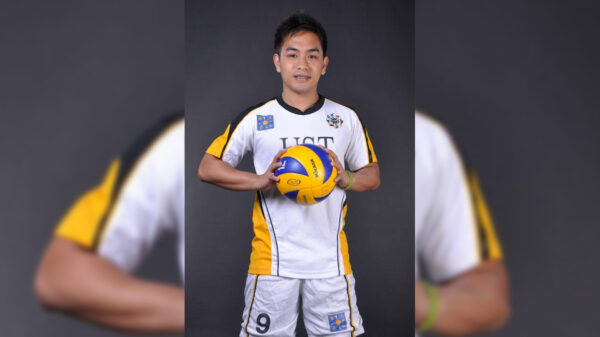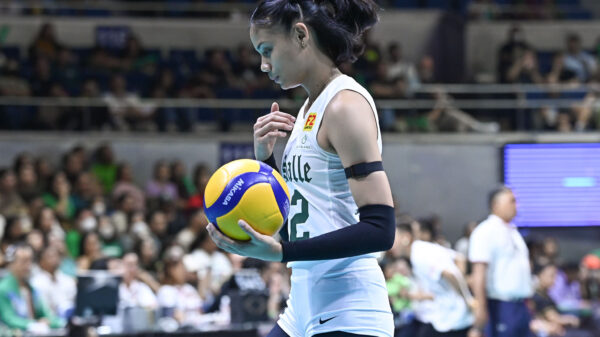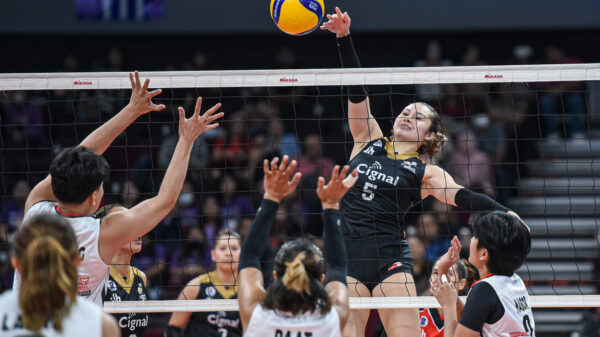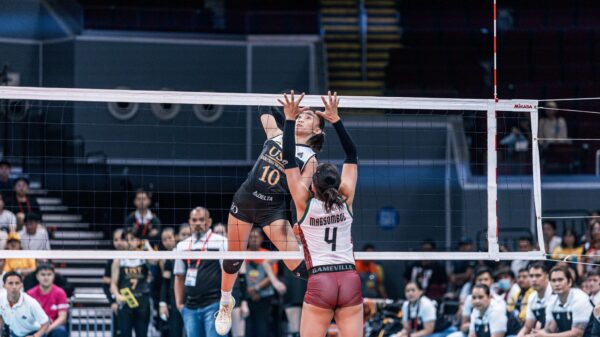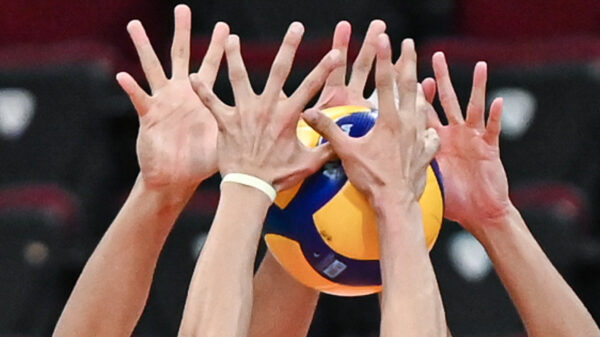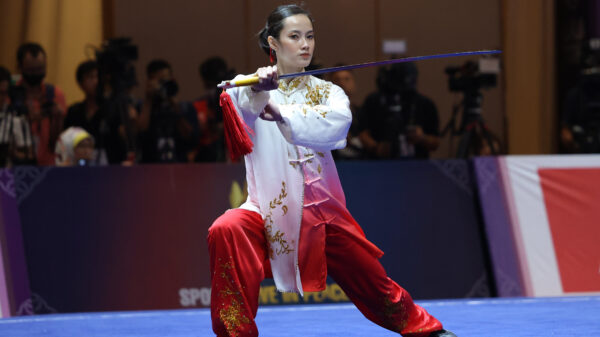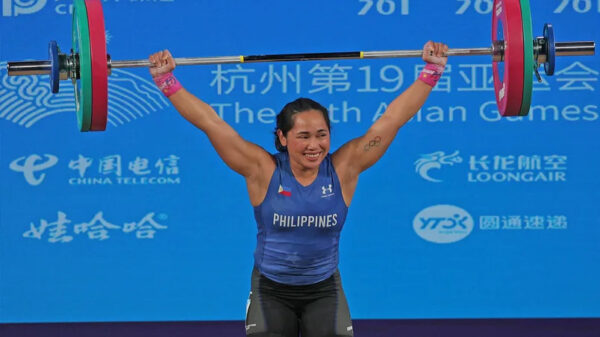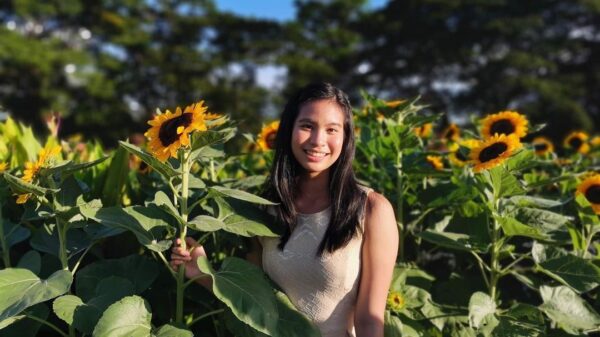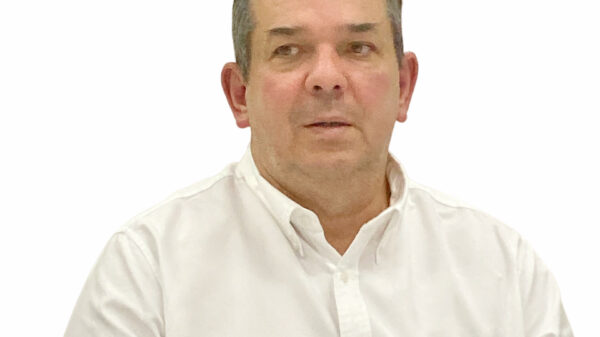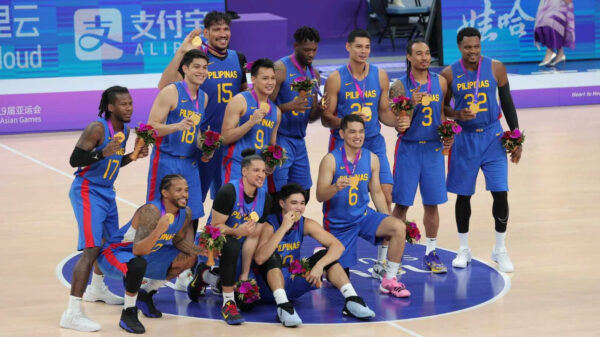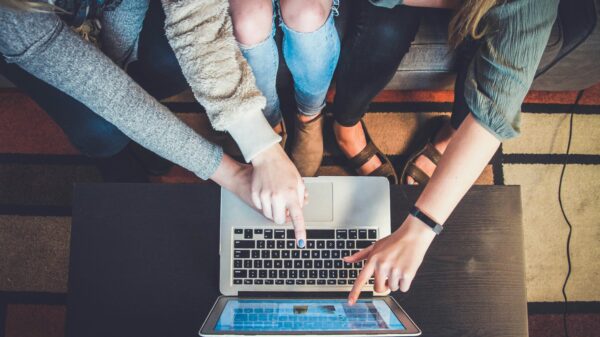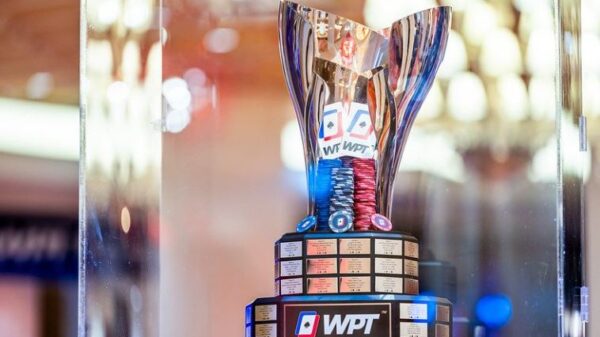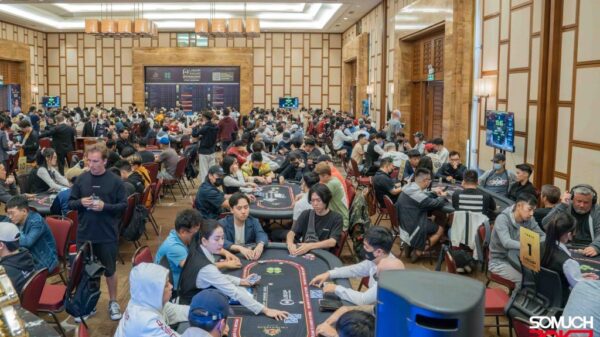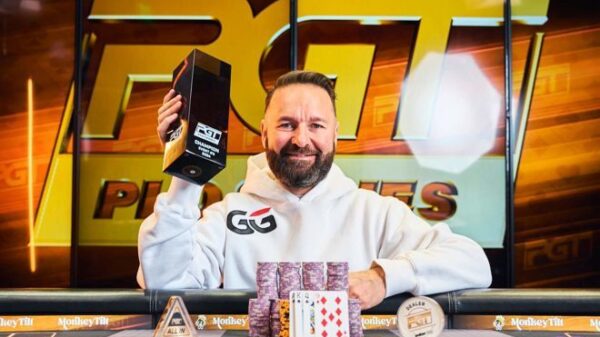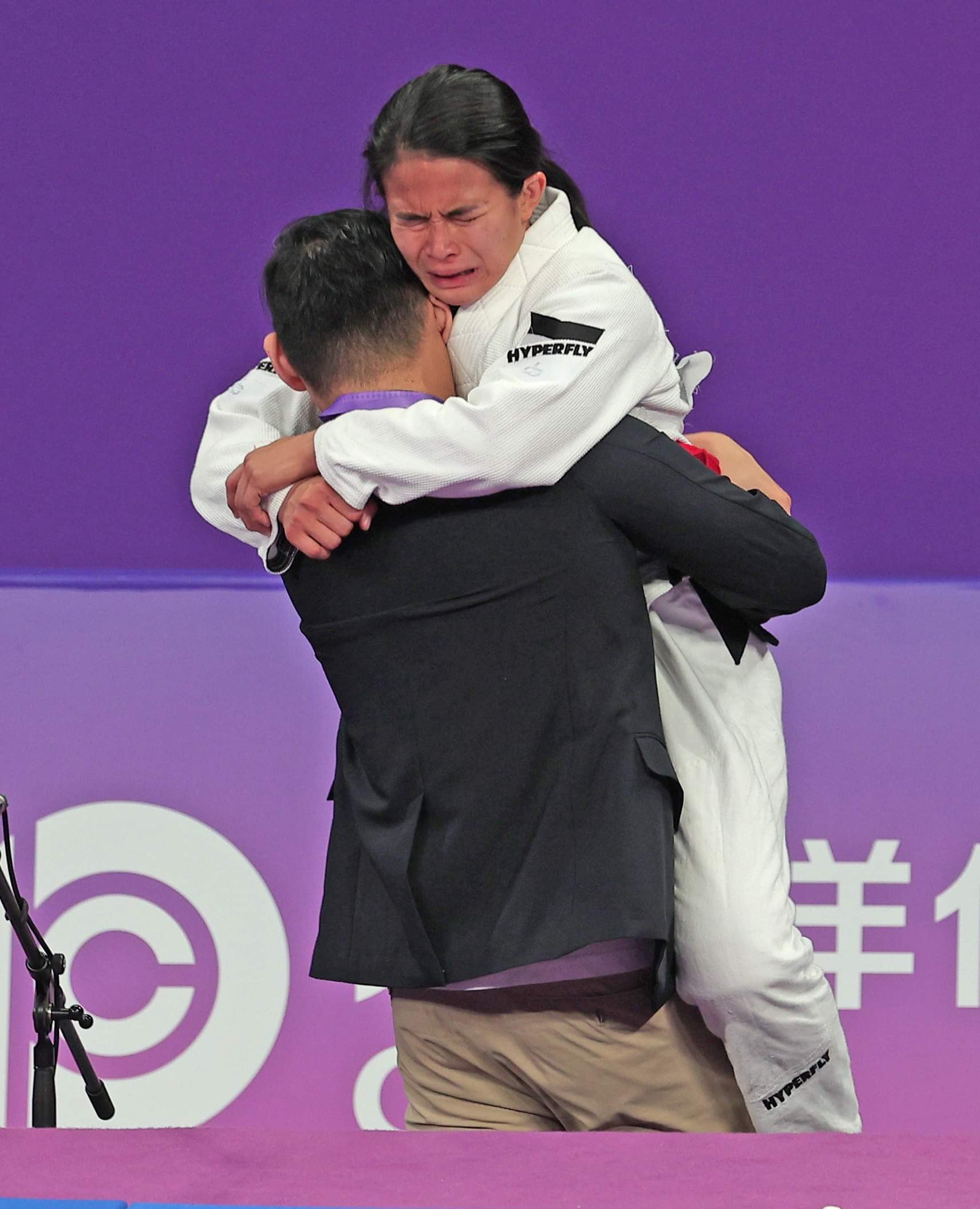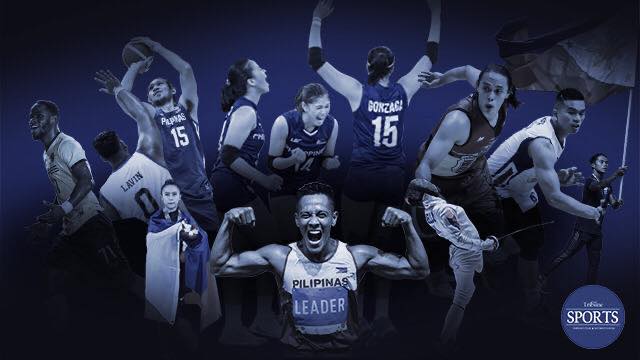HANGZHOU, China — For a while, Meggie Ochoa doubted her ability to win.
But she kept the faith and worked hard until she finally struck the country’s second gold medal in the jiu-jitsu competition of the 19th Asian Games on Thursday at the Xiaoshan Linpu Gymnasium in this bustling metropolis.
The 29-year-old Ochoa essayed a masterful victory over Balqees Abdulla of the United Arab Emirates in the final of the women’s -48-kilogram match to claim her first Asian Games crown.
It was a sweet victory for Ochoa, who was able to beat the younger Abulla after keeping a dominant position early until hammering a mount in the 4:32 mark of battle for the gold medal.
Prior to that, she defeated a stellar cast of foes like Odgerel Batbayar of Mongolia, Nazgul Rakhayeva of Kazakhstan and Pechrada Tan of Thailand to set up a finale with the 19-year-old Abdulla.
It was the country’s second gold medal since EJ Obiena soared to a record-breaking 5.90 meters in the men’s pole vault event last week.
Team Philippines still has a chance to pocket their third bronze medal as Olympic bronze medalist Eumir Marcial is still battling hometown favorite Tanglatihan Tuohetaerbieke of China in the gold medal match of the men’s 80-kilogram boxing event at press time.
But what made Ochoa’s win sweeter was the fact that she completed it despite all the anxiety, sickness and injuries she went through leading to the gold medal match.
“This is different. I went through a lot. My struggles make the victory even sweeter,” said Ochoa, who atoned for her bronze-medal performance in the previous Asian Games in Jakarta in 2018.
“This is so overwhelming because a lot has happened here. Until last night, I had a fever. I thought I couldn’t make it. Until today, I took a lot of medicines just to feel better. Then, during the semifinals, I suffered a hip injury. It was painful.”
“But I told myself that I will do everything to win. I will give my all just to get this gold.”
Ochoa said everything is worth it.
“My other teammates were also sick. But, of course, we supported each other. We can’t win if we don’t support each other.”
She added that scouting her opponents and studying their styles played a crucial role in her campaign.
Abdulla, in fact, used to train with her at the same gym in San Diego, California, giving her a good idea on how she competes.
“I am familiar with my opponents because I really research about them,” Ochoa said.
“She trained at the same gym where I was also training. I also played against her but she was injured so I beat her. But now, both of us were healthy so it was a good match — a very close match.”
Aside from Ochoa, also shining on the day after Gilas Pilipinas took the spotlight with a massive 77-76 win over China in the semifinals of the men’s basketball tournament was karateka Sakura Alforte, who pocketed the bronze medal in the women’s individual kata at the LSC Gymnasium. Alforte finished with 41.90 to defeat Hui Hsuan Chien of Chinese Taipei in the bronze medal match to jack up the country’s bronze to 10.
Prior to Alforte, other Filipino bronze medalists were wushu’s Gideon Padua of wushu, Clemente Tabagura Jr. and Jones Inso; weightlifter Elreen Ando; taekwondo’s Patrick King; cycling’s Patrick Coo; the sepak takraw team; tennis players Alex Eala and the duo of Eala and Francis Alcantara.
Wushu fighter Arnel Mandal is also accounted for the country’s lone silver medal to round out its haul to two gold, one silver and 10 bronze medals as of press time.

